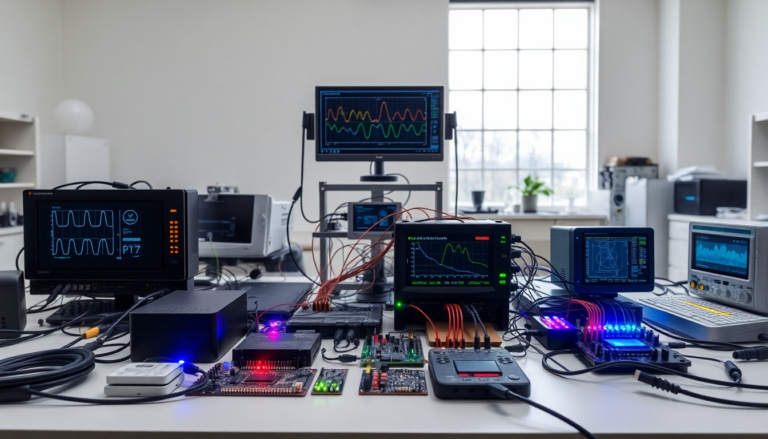Argomenti trattati
What is quantum computing?
In recent years, quantum computing has transitioned from theoretical discussions to a practical reality that is reshaping the technology landscape. Unlike traditional computers that process information using bits represented as 0s and 1s, quantum computers leverage the principles of quantum mechanics. They utilize quantum bits, or qubits, which can exist in multiple states at once due to phenomena like superposition and entanglement.
This unique capability allows quantum computers to perform computations at speeds exponentially faster than their classical counterparts. As a result, they are poised to tackle complex problems across various industries, from cryptography to drug discovery.
Key players in the quantum computing space
Leading the charge in quantum computing advancements are both established tech giants and innovative startups. Companies such as Google, IBM, and Microsoft are at the vanguard of this technological revolution.
- Google: In 2019, Google announced that it had achieved “quantum supremacy” with its 54-qubit processor named Sycamore. This processor completed a specific computation in just 200 seconds, a task that would take the world’s fastest supercomputer an estimated 10,000 years.
- IBM: A long-standing pioneer in quantum research, IBM provides the IBM Quantum Experience, a cloud-based platform that enables researchers and technology enthusiasts across the globe to experiment with quantum computing.
- Microsoft: Through its Azure Quantum initiative, Microsoft is working on a comprehensive cloud service that supports a wide array of quantum solutions, including quantum-inspired algorithms.
The role of startups in quantum innovation
While tech giants are making headlines, startups also play a crucial role in the quantum computing landscape. Companies like Rigetti Computing and IonQ are making significant strides in developing scalable quantum processors and integrating quantum systems with classical computing infrastructures.
Rigetti Computing is recognized for its hybrid quantum-classical computing models, offering cloud access to its quantum computers, while focusing on optimizing algorithms for practical applications. On the other hand, IonQ specializes in ion trap technology, commercializing quantum computing with an emphasis on accuracy and operational readiness through a cloud-accessible framework.
The future of quantum computing
As we continue to explore the potential of quantum computing, its intersection with fields like artificial intelligence, cryptography, and drug discovery is particularly promising. The collaborative efforts between startups and tech behemoths are not only shaping a new computing paradigm but are also redefining the future landscape of technology.
The implications of these advancements are vast, presenting opportunities for more robust security protocols, enhanced data processing capabilities, and groundbreaking solutions to complex problems. As the quantum revolution unfolds, we can expect a future filled with possibilities that were previously thought to be the realm of science fiction.
Why quantum technology matters
Quantum technology is not merely an academic curiosity; it stands to revolutionize the way we approach computing and data analysis. With its ability to handle vast amounts of information and solve problems that are currently intractable for classical computers, quantum technology could lead to breakthroughs in various sectors.
From optimizing supply chains to developing new materials and pharmaceuticals, the potential applications of quantum computing are limitless. As we venture further into this new frontier, the collaboration between industry leaders and innovative startups will be essential in realizing the full potential of quantum technology.

